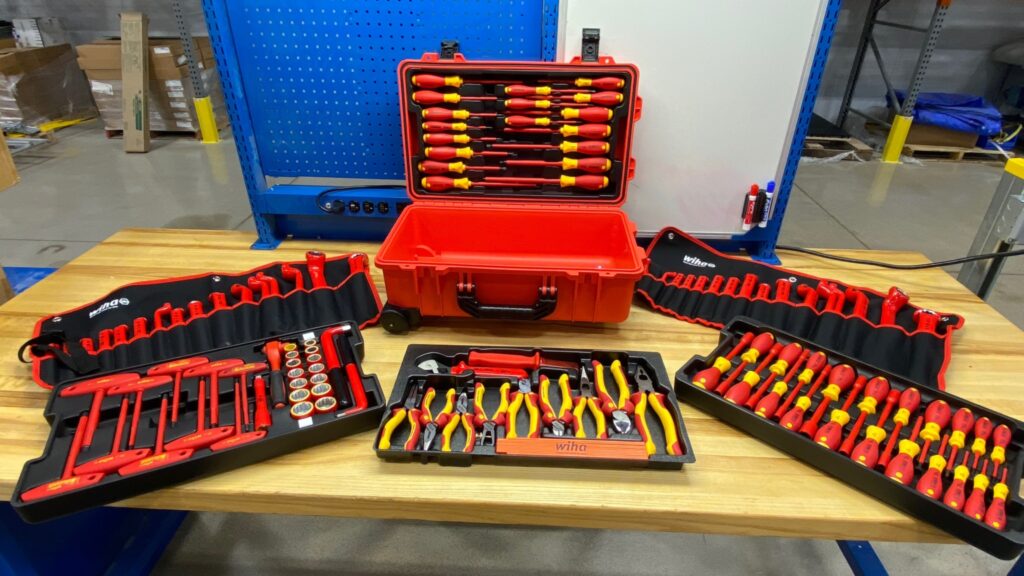Your future BEVs will require new PPE
Technicians working on electric vehicles will have to get used to wearing some new personal protective equipment (PPE). This might include high-voltage safety gloves, a high-voltage safety apron, insulated shoes, and a face shield. The purpose, of course, is to put a little something between technicians and the high-voltage equipment.

The service and maintenance manuals that are being written as we speak all urge techs to get properly suited up prior to beginning work on such trucks. Those requirements won’t necessarily apply to tire technicians and body shop personnel, but anyone working on or near the electrical system — especially the orange wires.
- Face shield – protects the eyes from any arc flash that could occur if an electrical spark is produced.
- Rubber apron – protects against inadvertent contact with metallic parts of the chassis.
- Electrical safety gloves – should be worn when working near any high-voltage components, not just the vehicle batteries. Ordinary latex gloves do not provide sufficient protection from the shock hazard. Some rubber gloves have a leather outer casing.
- Cotton under-gloves – worn underneath electrical safety gloves, these provide additional protection as well as reducing discomfort in hot, humid conditions.
- Dielectric boots and shoes – A dielectric over-boot provides additional insulation to protect against electric shocks should a vehicle technician contact a live electric source. They can be worn over existing footwear.
Fleets and dealer shops may have specific requirements for technicians working on electric vehicles, but those are the basics. The equipment isn’t cheap (task-appropriate PPE could cost up to $300), so fleets may not ask all maintenance staff to provide all their own PPE. Just the people who work on the trucks.
“Personal protective equipment is not something that’s typically shared among workers,” says Brandon Wandel, operations manager of Dana’s sustainable mobility center in Maumee, Ohio. “As far as the high voltage tool sets? Our technicians each have their own set of tools, but I think that would be dependent on individual fleets.”
Have your say
This is a moderated forum. Comments will no longer be published unless they are accompanied by a first and last name and a verifiable email address. (Today's Trucking will not publish or share the email address.) Profane language and content deemed to be libelous, racist, or threatening in nature will not be published under any circumstances.